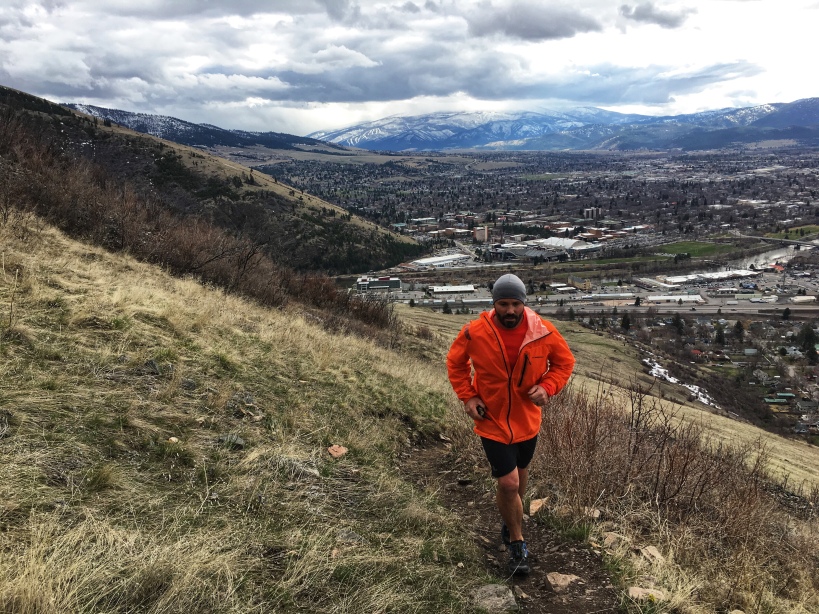 By Kristina Pattison, DPT, OCS,CSCS
By Kristina Pattison, DPT, OCS,CSCS
Rarely, patients outright say they’ve considered no longer living. But it is said. And sometimes, they mention all the other terrible things, both psychologically and socially that have happened to them, as an addendum to what’s happening right now in real time, with their physical body.
Humans are complex creatures who identify with their lifestyle, and the way they interact with the world. For that reason, physical injury shakes people up a bit. For runners, it can be a question of losing their identity: their social network, their commitments, their ability, their accomplishments, their coping mechanism. They may go from being the head of the pack, to isolated from their pack. They may miss social outings or have few who understand their predicament. As runners struggle to feel better, these factors can inappropriately pressure them to continue doing the one thing that’s hurting them the most: running.

Psychologists have explained these struggles in context of loss as the five stages of grief. Typically thought of in terms of the death or dying of a close friend or family member, injuries can cut to the core in similar ways.
These stages include—in no particular order—anger, denial, depression, bargaining, and acceptance. They present in any order, can last as long as they take, and can repeat. But at last, eventually acceptance will persist and only then can one move on.
Clearly, anger walks side by side with denial.
Anger is fairly self-explanatory. Often it can be accompanied by actions such as blame, regret, resistance to help. For example: searching for the right shoe, “doctor-shopping” for better information, blaming the coach or the running partner for their plan or ideas. Clearly, anger walks side by side with denial.
Denial is the little voice inside that says everything is fine. This will go away. And, “No one knows what the heck they are talking about. Ok. I’m fine.”
Depression sets in and running is the enemy.
Usually, the denial voice and the anger voice eventually get overpowered by a deep sense of loss. Depression sets in and running is the enemy. For runners, it can be as simple as not getting the results. Normal runs become slogs. Races become survival. Post-run bliss is replaced by sadness and sometimes self-medication. In this stage, it can be hard to remember what the point of running is in the first place. “Why is running so stupid?” the injured runner may ask. My friends don’t understand, I’m gaining weight, I hate running. I hate runners. I love CrossFit.”

Then, in the midst of all the various emotions bouncing around inside that nine-pound bowling ball made mostly of fat and water, some “great ideas” serendipitously present themselves. These are the enigmatic bargains of a forlorn runner: “I’ll do all my stupid clamshells if I can just run a couple miles without pain!…I’ll lose ten pounds so I can keep up…I’ll go to barre…I’ll get new shoes…I’ll find a new doc…I’ll go slower, faster, flatter, steeper, whatever it takes.”
I’ll do all my stupid clamshells if I can just run.
We’ve heard it all. And I’ve said it all. (I am a runner after all.) But someday after the idea of cutting your head off to lose ten pounds starts to sound a bit extreme, you just finally accept it. You’re injured. Your body can’t maintain the load you want to put it through. And in the meantime, yes you may have lost your friends or pushed them away. Yes you’ve missed out on results and races and fun runs. Yes you’ve put on weight and suffered through stupid classes you didn’t like. Yes you’ve likely insulted some doctors and physical therapists and maybe even some poor shoe salesperson.
But it’s okay. You’re forgiven. Time to move on, put down the Ben and Jerry’s, and start being an injured runner.

No one gets to predict or skip the stages of grief during injury. But having some situational awareness on the front lines can help runners identify when they are traveling off route. Learning to listen to the body and respect its limitations is a skill and individualized art, worthy of honing through reflection versus trial and error. When life outside running is exhausting, it’s okay to back down a bit from training, take a physical assessment, and if something doesn’t feel right, even if it doesn’t hurt, get some input from a physical therapist.
Kristina Pattison is an orthopedic physical therapist who spends her free time running around in the mountains with her pups and husband or doing rehab for her laundry list of past injuries.
I hate being injured. Thanks for this.
You bet! It’s the worst.